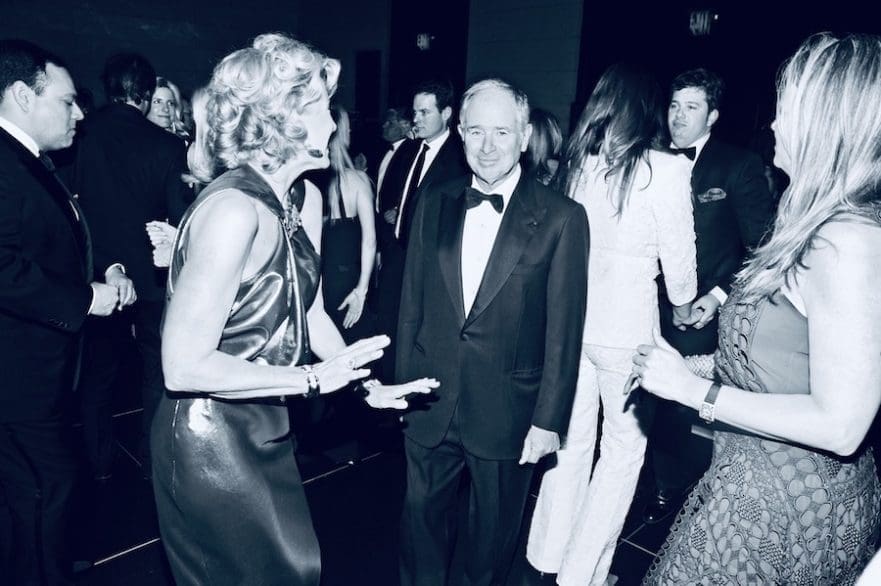Billionaire Stephen Schwarzman, a fierce opponent of rent control, raked in an astounding $610.5 million from dividends and compensation last year, according to Reuters. Blackstone Group, the private equity firm co-founded and led by Schwarzman, spent millions to defeat Proposition 21 and Proposition 10 in California. The initiatives sought to expand rent control as Californians struggled to pay wildly inflated rents and avoid homelessness.
Blackstone Group is one the largest corporate landlords in the world, with a global real estate portfolio worth $324 billion that includes 296,000 apartments and homes. The firm, for example, owns Stuyvesant Town-Peter Cooper Village, a massive affordable housing complex that provides more than 11,000 lower- and middle-income units to some 30,000 tenants. In a controversial response to tenant protections passed in New York in 2019, Blackstone kept rent-regulated apartments vacant. Public outrage forced the corporate landlord to reverse that policy.
Among housing activists, Stephen Schwarzman is known as a “modern-day robber baron,” and housing experts at the United Nations pointed to Blackstone Group as a key player in the global housing affordability crisis. Predatory business practices have made Schwarzman one of the world’s richest people, ranked twenty-fourth with a net worth of $23 billion, according to Forbes.
As middle- and working-class Americans struggle to pay unfair, exorbitant rents for small apartments, Schwarzman owns opulent mansions in Saint-Tropez, Jamaica, East Hampton, and Palm Beach. And he’s known to throw extravagant parties with his billions, such as an “epic” 70th birthday bash in Palm Beach that reportedly cost $20 million.
“Steve loves parties,” art dealer Larry Gagosian told Bloomberg.
(Read the Housing Is A Human Right special report: “Modern-Day Robber Baron: The Sins of Blackstone CEO Stephen Schwarzman.”)
Schwarzman has not only come under wide criticism for Blackstone’s business practices, but also for being a close advisor and major campaign contributor to Donald Trump — Schwarzman shelled out $4.4 million to Trump’s presidential campaign or political committees connected to Trump, according to Federal Election Commission filings.
In 2018, Blackstone Group was one of the top campaign contributors to oppose Proposition 10, the California ballot measure that sought to expand local rent control policies. The firm shelled out more than $7.4 million to successfully kill the initiative through a misleading TV ad campaign.
In 2020, a time when middle- and working-class tenants had lost work due to the COVID-19 pandemic and struggled mightily to pay sky-high rents, Blackstone Group and Stephen Schwarzman opposed California’s Proposition 21. The ballot measure again aimed to expand rent control in the state.
For Prop 21, however, Blackstone and Schwarzman utilized a shell committee to funnel campaign cash to No on Prop 21: Californians to Protect Affordable Housing. The firm was obviously trying to stay out of the public spotlight. It didn’t work, but Blackstone and other corporate landlords spent nearly $100 million to trick and confuse voters through another TV ad blitz — and defeated the initiative in November.
Both Prop 10 and Prop 21 were spearheaded by Housing Is A Human Right and its parent organization, AIDS Healthcare Foundation.
Blackstone and Schwarzman opposed the ballot measures because Prop 10 and Prop 21 would have allowed California cities to regulate rents — and they would no longer be able to charge tenants excessive prices. Blackstone and Schwarzman also feared that the rent control movement in California would spread to other states.
(Go to greedystephenschwarzman.org for more information about the billionaire.)
During the COVID-19 pandemic, billionaires took heat for becoming even more wealthy while millions of Americans struggled to pay bills and rent. That includes Stephen Schwarzman, whose net worth exploded by another $5 billion. In December 2020, Schwarzman bragged that Blackstone was a “huge winner” after the 2008 financial crisis and that “huge increases in rent” were key to the firm’s success. Clearly, it also helped the billionaire haul in $610.5 million in 2020.

